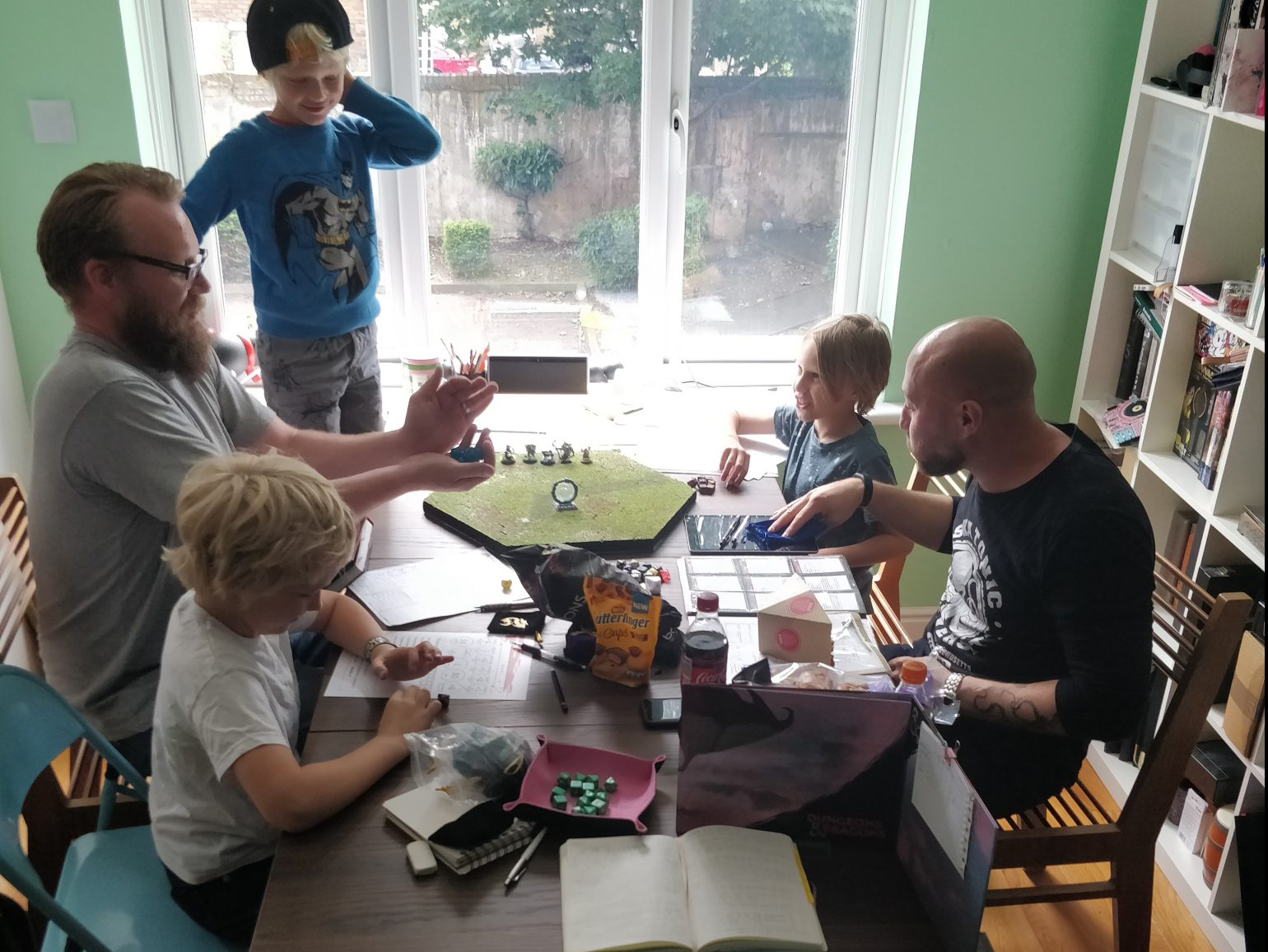Listening to the ever-awesome Runehammer talking about the value of beginner’s mindset in D&D. Having that awe and wonder, that sense of not expectations of oneself or the game, nothing to prove and that sense of immersion and gravity of the unknown. The chat is almost 2 hours, but it is absolutely worth it if you are looking for advanced DSM stuff.
Getting people in the beginner’s mindset is one of the key challenges of the Professional Workshop Facilitator and there are books and methodologies on the topic.
While I am not a fulltime Workshop Facilitator, I have facilitated workshops professionally and have trained in various methodologies (including my favourite that involves LEGO believe it or not).
So here are three tips I am going to attempt to transfer to DMing.
1. Change the environment
When we, as human beings, enter some place unfamiliar, our brain switch to a different mode because we need to learn everything we see and catalogue it in our brain. As such, we are more switched on.
- Change where you play. Instead of playing at home, play at a function room in a pub or similar, change it to a park… or simply move from the living room table to the sofas.
- Change the setting for individual games – rather than play the session the Players expected to find, come up with a story of why the characters find themselves in a shared dream having to solve a way to to get back. Maybe a Beholder brought them to a dream world to solve a problem it can’t solve by itself.
- Use ambience once in a while. If you don’t use music, do it. If you normally use miniatures, don’t. Wear a costume (or require players to do so). Handout props, etc
This brings back a sense of discovery.
2. Change the parameters
When we get too familiar with our “truth”, we tend to rely to much on it. How can you remove or change something the players rely on? Yes, I know you will get people warning against this, but remember we are talking advanced DM stuff here, so it can be done it through through (I doing it in our current campaign as we speak)
- Remove core assets from the players. How about a Wizard with no spell slots? A blinded Fighter maybe? A Barbarian who has lost her Rage? A Rogue whose hands are suddenly shaking?
- What about body switch? Suddenly the characters see themselves through the eyes of the goblins they were fighting moments ago. Or just mix up characters between players.
- Introduce mechanics you haven’t used before. Oh… we need torches? I need spell ingredients? What do you mean we don’t understand the Orc.
- The oneshot that matters. Play a oneshot, or let one of your players DM one. But when the regular game gets back on, the events from the oneshot has changed the main game.
- Introduce The Grim Reaper. My favourite session from the last three years of play, was our total parry kill. Once our players had settled on the idea they were dead, I brought the whole thing back to one last boss fight with Death himself. What a fantastic encounter… in fact, a smaller version of this is just to remove Death Saves.
This brings back a sense of awe and gravity.
3. Change the group dynamics
As with all groups of people, we are fall into individual roles when in a group of people. Change this group dynamic.
- Bring in the kids! If you have players with children, play some games with the children as guest stars. Now that will change the group dynamics!
- Guest players. Guest players in general are interesting unknown to throw in the game.
- Guest DM. This could be one of the players who want to give DMing a try. Sandbox campaigns are best for this, but where there’s a will there’s a way. This can also be a player who is no longer playing, for example if they moved. Dial them in via Zoom for a game or two.
- Guest Boss Monster. Invite a guest DM to come in only to run the boss monster! think about it: How would your last boss monster have been different if somebody else ran it? I have not tried this option myself, and I understand this is a high risk option because this is lethal, nevertheless, I think this is a fascinating idea.
- Split the party. Split the party in such a fundamental way that next game will be with player 1 and 2, the following game with player 3,4 and 5. Only do this for a couple of game max, but it gives a lot of energy and discussion once everybody is together again.
This breaks the established roles of the group and brings back freedom.
